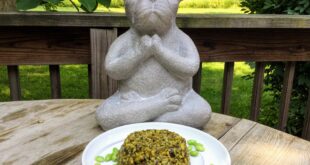
By Jakeb Brock
There are essentially only two proactive postures for human beings to assume: exertion and listening.
Human exertion encompasses all manner of doing, working, accomplishing goals, expressing ourselves socially, as well as emoting and thinking. Doing, working, and socializing tend to be consciously instigated behaviors, while emoting and thinking often happen unconsciously. This distinction has caused many to believe that emoting and thinking are not exertions, but most of the time, they are.
In contrast to all this exertion, human beings also possess the capacity for listening. Listening is our only real proactive alternative to exertion. When listening, we actually shift our posture—from one of expending and dispersing psychic energy to one of receiving and replenishing. It is no secret that in today’s fast-paced world, we tend to exert most of the time and rarely shift to listening. The balance between these two energies has gone out the window with the scale tipped towards the side of exertion. The result of this imbalance is that we have become a people who are always psychically depleted and running on empty. We spend all day, every day pouring ourselves out without ever stopping to replenish the tank, and then we wonder why we are stressed, unhappy, irritable, weak and sickly.
All of the recorded spiritual masters stressed the importance of listening as a mode of psychic replenishment. Materialistic human culture, especially in the West, has countered this imperative by painting the picture that our happiness and well-being come to us primarily through getting and accomplishing. The art of listening has not only been neglected, it has been largely lost.
As the new spiritual consciousness emerges, more and more individuals are gaining insight and are discovering the lost art of listening. Through the daily practice of meditation, they are experiencing the wonder of integral healing that can come from restoring this crucial balance of energies.
Some may wonder: what is the connection between meditation and listening? Isn’t listening something we do with other people when they speak to us? Yes, that is a kind of listening, but the restorative benefits of listening are not generally unleashed by listening to others as they speak. Rather, these come from listening to our Higher Self. The Bible calls this function the “still small voice.” The fact that we all have this still small voice within us and can access it freely through the posture of listening means that we all have the potential to become vehicles for the divine will and life.
This life restores and rejuvenates our psychic energies. It is not to be found “out there” somewhere, but rather, it is found inside of us. Listening is called for because this inner voice is anything but loud and ostentatious. It truly is small and still. It can also seem mysterious to us in the sense that it is not generally audible. Through the practice of meditation, we fine-tune our ability to listen and become increasingly adept at comprehending this new kind of inaudible speech. We come to understand that listening is more than just a posture, it is an art form.
Another thing that makes this kind of inner listening an art form is that the speech of the divine impulse may be without words. It may come through the subtler medium of thought or feeling impressions. As a medium of communication, words are invaluable. We have all become extremely comfortable with this medium, no matter what language we speak. Our cognitive minds have been trained to associate words with feelings and images, creating a feast of stimulation in our minds. This can be true of both the spoken and written word. The problem is that though intellectual stimulation has become one of the underpinnings of modern Western culture, it does not necessarily translate into restorative energy. Words tend to affect our minds a little like a sugar rush affects our bodies. They bring us a fleeting sense of euphoria, only to then leave us feeling flat and emptier than ever. But the art of listening fills us and recharges our batteries.
As is commonly known, meditation involves the practice of stilling and quieting ourselves inwardly. What is not widely understood is the connection between stillness and the posture of listening. Once we attain stillness, we can be almost certain that we have ceased exerting and clicked into a listening mode. Getting still causes us to open our listening ear, while consciously listening increases our sense of stillness.
Modern life is not conducive to the pursuit of inner stillness. Our lives are not only busy and given over to exertion, but they have also been highly conditioned and tend toward unconsciousness. Much of the time our inner world is inundated with subtle wavelengths of discord and disharmony. That is why the simple act of shining the light of conscious awareness into our inner world can be so powerful. It has the effect of not only exposing unconscious thought and emotion but also disarming the triggers that have been causing them. The more that we can do this, the less often our psyche will be given over to wavelengths of disturbance and discord. This will make the attaining of stillness less daunting.
Listening for and receiving the divine impartation may not solve every problem. God is not a genie that grants us our every human wish and desire. Listening for and receiving the divine impartation regularly will reverse the draining off of our vital psychic energies so that instead of always running on empty, we will be gradually filled on the inside and energized in a way we have never been before. This new influx of life and energy carries its own rewards. Encouragement and enthusiasm soon come to dominate our normal waking outlook, and we begin to live an inspired life.
Once we master the art of listening, inspiration can become a common experience for us, infusing even the mundane aspects of our lives with a new sense of purpose and vitality. Only through becoming still and assuming the posture of listening can we receive the divine impartation, and only through receiving the divine impartation, do we become truly inspired. One day filled with inspiration will make us feel happier than a week spent accumulating and accomplishing.
True listening is an art, and like any art, it takes time and practice to master. Structured times of meditation are invaluable because they set the table for the feast of divine impartation. They get us off of the treadmill of exertion and allow us to assume the posture of listening that replenishes our psychic energies.
Though constant exertion may appear both necessary and sensible to those trying to make headway in this life, we must not lose sight of the fact that true life emanates from one source only—that being the divine impulse radiating at the core of our inner being. Without maintaining a vital connection to this source, all of our doing will ultimately be in vain.
Jakeb Brock is the author of The New Consciousness: What Our World Needs Most. As a teacher and author, he emphasizes man’s present potential rather than mythical future glory. Visit www.facebook.com/thenewconsciousness for more.
 Conscious Community Magazine Dedicated to Elevating Consciousness
Conscious Community Magazine Dedicated to Elevating Consciousness



